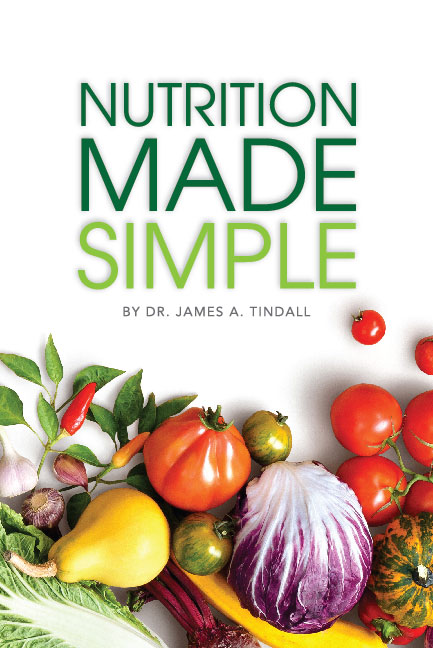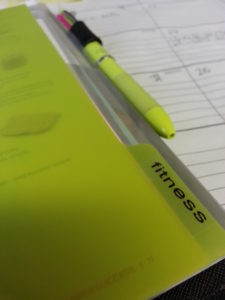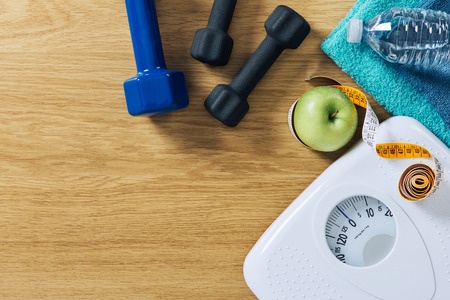Finding a Balance – Your Weight
There’s always a lot of talk about the different components of food and, everyone seems to have an opinion about what is right and what is wrong. But face it, whether you’re consuming carbohydrates, fats, or proteins all of them contain calories. If your diet focus is on any one of these alone, you’re missing the bigger picture. Thus, if you want avoid looking similar to the photo above, you want to know the facts about basic health and what you need to do to stay as healthy as you can, particularly with food and lifestyle.
Energy In less Energy Out: The Caloric Balance Equation
We all want to lose weight, well, at least those who are overweight. But, you don’t want to go up and down in your weight like a yo-yo. Ideally, you want to maintain a healthy weight and you want to do it long term.
When it comes to maintaining a healthy weight for a lifetime – calories count!
Weight management is all about balance—this means balancing the number of calories you consume with the number of calories your body uses or “burns off.” Think of it this way; food is energy. Thus, the equation is: energy in – energy out = your weight.
• A calorie is a unit of energy supplied by food. It doesn’t matter what food type the calorie comes from because a calorie is a calorie regardless of its source. Carbohydrates, fats, sugars, and proteins, all contain calories.
• Caloric balance is like a scale. To remain in balance and maintain your body weight, the calories consumed (from foods – energy in) must be balanced by the calories used (in normal body functions, daily activities, and exercise – energy out).
Advertisement: Amazon (click on photo for more info)

Therefore, there are three simple scenarios when balancing the energy in minus energy out (caloric balance):
1. Maintaining Weight: you must eat about the same number of calories that your body uses each day. Doing so will result in a stable weight;
2. Gaining Weight: you are eating more calories each day than your body burns and this is the general case for a great many people, which results in being overweight or obese and can lead to serious health problems. In other words you store the excess calories as fat; and
3. Losing Weight: you are eating fewer calories than your body uses each day. Doing this uses fat storage cells for energy thereby, decreasing your weight. This is the step you need to be at to begin losing weight.
Let’s talk about step 3. To lose weight, you need to watch portion control and eat less energy than your body burns daily. You can compound or multiply fat loss by both eating less and exercising regularly. And, believe it or not, there is a lot of science behind this.
Thus, regardless of your fitness, training, and health goals, if you are maintaining your current body weight, you are in caloric balance. If you need to gain weight or to lose weight, you’ll need to tip the balance scale in one direction or another to achieve your goals.
To be able to do this there’s just a couple of things you need to know. First, it’s all about the energy balance; food is energy. How much energy do food have? Alcohol carbs have 7 calories per gram; carbohydrates and proteins have 4 calories per gram; and fat has 9 calories per gram. Second, it’s all about the math; you need to figure out the number of calories you need, how much your meal plan is giving you, and balance it out – this means eat more, less or the same depending on your weight goals.
Also, it takes about 3,500 calories below your calorie needs to lose a pound of body fat. While this can vary from person to person and your exercise regimen, this is the average and a good base to work from. Therefore, to lose about 1 to 2 pounds per week, you need to reduce your caloric intake by 500—1000 calories per day. There’s also the food choices you make, exercises you perform and a host of related factors. Keep reading the website to educate yourself. Regardless, this is an excellent start.
To learn how many calories you are currently eating you will need to be a calorie counter for a little bit though, you must not get into the habit of doing it all the time. Begin by writing down the foods you eat and the beverages you drink each day and have a daily total. This will help you become more aware of everything you are consuming. By the end of the week you’ll know how well you have been doing. At this point, you’re not trying to change anything, you’re trying to get a handle on your energy use so, eat normal and record it. At the same time, begin writing down the physical activity you do each day and the length of time you do it. You will be able to look up the exercises and determine how much energy you burned and compare that to the total amount of energy from food, in calories, that you ate for the week.
Advertisement: Levenger (click on photo for more info)

Amber tried this experiment. Her total food in calories was about 1,400 calories each day, but on two days, the weekend, she ate almost 1,800 calories. Her total consumed calories for the week was 10,400 calories. She exercised 3.5 hours for the week and burning 875 calories. Thus, we have some numbers to work from.
Amber,s goal weight is 120 pounds. With no activity, she would need to eat her body weight x 10 + 200 or 1,400 calories per day for a total of 9,800 calories per week. How did she do in terms of weight loss or gain? Well, she ate 10,400 calories and burned 875 for net calories of 10,400-875 = 9,525 calories. Considering she needs 9,800 calories to maintain her weight, she had a negative caloric balance of 9,800 – 9,525 = 275 calories. Potentially, she lost about 1/10 pound.
You can see right away that exercise and physical activities (both daily activities and exercise) help tip the balance scale by increasing the calories you expend each day.
Recommended Physical Activity Levels
The recommended amount of exercise includes 30 minutes per day for 5 days per week (150 minutes) of moderate-intensity aerobic activity (i.e., brisk walking), as well as muscle-strengthening activities for 2 or more of those days. The muscle strengthening activities should ideally include exercises that work all major muscle groups (legs, hips, back, abdomen, chest, shoulders, and arms).
However, the above recommended amount of activity is essentially to maintain your current fitness and health level.
If you wish to truly improve and have a better caloric balance, increasing the intensity and or the amount of time that you exercise or are active can have even greater health benefits and may be needed for some to control body weight.
If you have children, encourage both children and teenagers to be physically active for at least 60 minutes each day, almost every day.
Remember that each person’s body is unique and may have different caloric needs. A healthy lifestyle requires balance in several areas: the foods you eat; beverages you consume; the way you carry out your daily activities; and the amount of physical activity or exercise you perform each day.
Although counting calories is not necessary, it can initially help you to gain an awareness of your eating habits so you can achieve a stable caloric balance. Of course, this balance is determined by whether you are gaining, maintaining, or losing weight.






